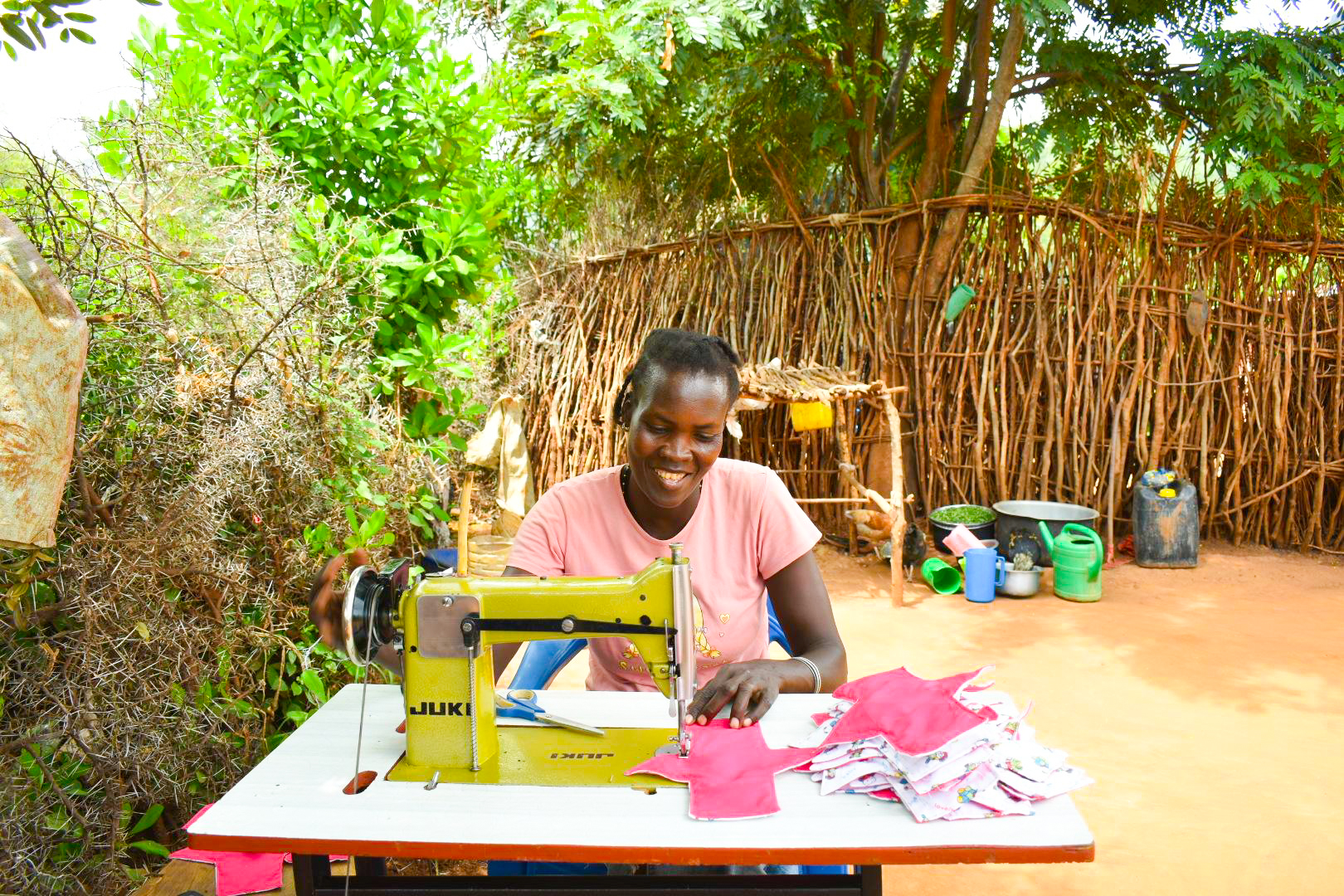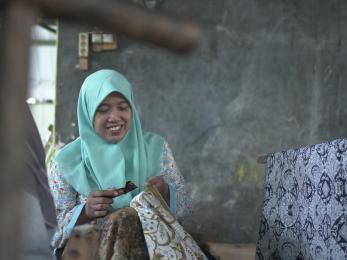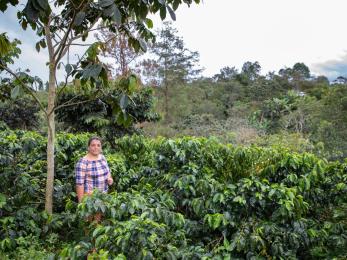In Timor-Leste, clean cookstoves offer opportunity for all

When we meet Frederico, he’s surrounded by a glass menagerie of flower vases cut from wine bottles scattered throughout his yard. Freddie, as he’s known, is a master craftsman who has worked with his hands his whole life: a severe physical disability means he uses a wheelchair.
He has also spent much of his life advocating for other people with disabilities as he navigates working with a disability of his own.
Just a short motorbike ride away, Freddie works for a small clean cookstove company that just launched this year. Clean cookstoves are critical in Timor-Leste: On an island facing the full brunt of climate change, where most people cook over an open flame, they burn less fuel and produce less smoke.
The courtyard where Freddie works is a shady hideaway among the hot streets of Dili, the island’s capital. But even though Timor is surrounded by calm seas and split by towering tropical mountains, it doesn’t take long to see the challenges of living here. Still struggling with a violent history of occupation, Timor-Leste has some of the highest rates of malnutrition in the world. Forty percent of people live in poverty, making it the poorest country in Southeast Asia. A quarter of the population is undernourished, while more than half the children under 5 are stunted.
Timor-Leste, one of the most idyllic islands in the world, can be one of the hardest places to live on earth.
Mercy Corps is providing support to Freddie's business to help them reach more customers, because a better business means a healthier island — and a stronger future for Freddie and the six other employees who work here.
So what’s it like to start a new business in Timor-Leste? We spent the morning talking to Freddie about what he loves about his job — and how Mercy Corps is helping the work go farther.

What did you do before working here?
Before joining this group, I was working with an international agency for disabled people. I took part in advocacy, in engaging other disabled people to get work. I was also working with sulfur, making bricks from clay.
When Mercy Corps came, I started doing this. I like the job because it gives me an opportunity, and it’s not too hard on me. I can also invite other friends who are like me to be a part of it. I’m happy here because we treat each other no different. No one can do everything by himself, but by working together we can achieve more.
What makes these cookstoves “clean”?
To classify as a clean cookstove it has to pass tests at a laboratory. There are three things that make them clean: they use less fuel and wood, they produce less smoke, and there is less time being consumed. Specifically, when we say clean it means less smoke.

What misconceptions do people have about people who work with disabilities?
Disabled people deserve the same opportunity as other people. Sometimes people just look at them as people who have disabilities, and they don’t really see the capacity that disabled people have. All disabled people have their own capacity, their own knowledge where they can do something.
Based on my experience, disabled people can do most of the work people without disabilities can do. Some of them, like me, can do stoves, but other friends of mine can do construction, or computer and administrative work. I think there’s no difference between disabled people and people without disabilities in terms of doing work.
Do you find this work rewarding?
It’s something I’m about passionate about because it doesn’t just benefit me, but all of my friends and the community as well. It’s a chance to help myself and serve others. That makes it a really good job. If you do your work with passion, it’ll be easier and you will enjoy it.
How has Mercy Corps made a difference for this business?
We sell the stoves, but Mercy Corps provides us with training and links to the market. They link us to the sales agent, who links us to the household who wants to buy a stove.
I really appreciate working with Mercy Corps. I’m really grateful that Mercy Corps is supporting us, because, as I said before, this job is not only benefiting us, but the entire community. By doing these clean cookstoves we’re serving the community and helping everyone have a better life.


